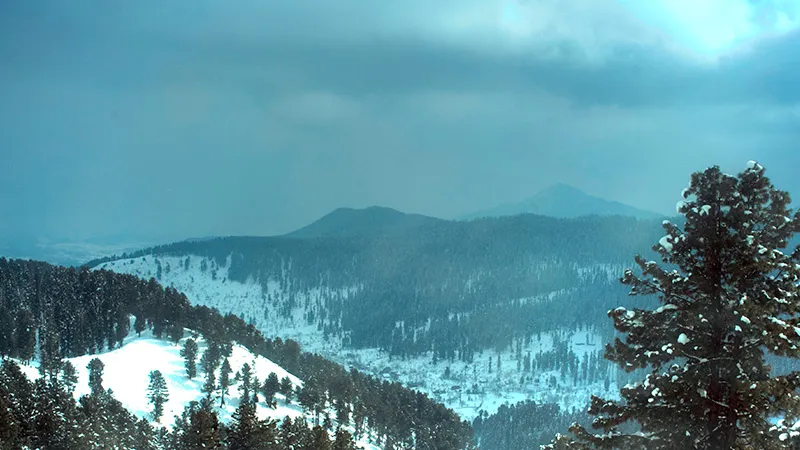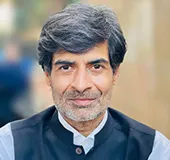Each time Kashmir erupts, as it has over the past month, a familiar set of opinions and debates comes to the fore, especially on social media and in prime time studios. The discourse is trapped between an overdone nationalism, a hyperbolic romanticism and a mutual denialism. It is important to identify the limits of what can and cannot, and what should and must be achieved in the Valley, keeping five realistic parameters in mind.
First, international appetite for experiments with self-determination is at its lowest since World War I. In recent times, interventions by global powers in Syria, Libya, Iraq and several locations in Africa have — whether militarily or politically — carved new territories and regimes. Moral and strategic arguments for and against these have been made, but there is near unanimity that such interventions have led to instability and created hotspots for radicalism, terrorism and human misery.
Why is this relevant to an understanding of Kashmir? It tells us the desire of the global community for a quasi-independent or unshackled Kashmir, as a manifestation of some libertarian notion of popular aspiration, is near zero. The opening of spaces for potentially Islamist regimes is a non-starter. This explains why, despite the ongoing turbulence, world pressure on India has been minimal. While not sacrificing cherished positions, stakeholders in the Valley have to factor this in.
The idealism of Kashmiriyat, first discredited with the cleansing of Pandits in the early 1990s and then through repeated violence against minorities in the state, is now viewed largely through the prism of “Islamiyat”. Cruel as this sounds, images of stone-pelting protestors being tear-gassed and shot today evoke less horror in the rest of India and the planet than do visuals of masked young men, dressed in black, carrying AK-47s and promoting a mix of religion and armed rebellion. In a post-9/11, post-Islamic State world, the proposition that Islamists are fighting for freedom is neither sellable nor credible.
 File Photo
File Photo
< style="line-height: 1.5;">Second, related to the first point, the backlash against unbridled self-determination is occurring just as the Westphalian system and nation-state territoriality are making a ferocious comeback across the United States, Europe and Asia. There is no patience for redrawing borders. Violence and protests in Kashmir, police action, curfew and suspension of civil liberties, constitute bad politics and poor democracy. Even so, these are seen as sovereign actions the world has left India to take, deal with and live with.
Ironically, this is a consequence of some in Kashmir wanting to “internationalise” their cause. As it happens they have done so by hitching their grievance to global jihad and locating it within an Islamist agenda. This has singularly allowed huge sovereign space for India to act against what is seen as a systemic non-negotiable.
Third, while the Westphalian comeback secures India’s autonomy in Kashmir, it also accentuates the Indian government’s obligations and responsiveness to its citizenry, disaffected or otherwise. Anti-terror crackdowns and operations in Kashmir and the decidedly imperfect democracy in the Valley are not incompatible with the idea of an efficient development state with the rule of law. China, South Korea and others have demonstrated that less-than-optimal political structures do not preclude efficient social and economic development and governance.
Without doubt India has failed in being an efficient development state in Kashmir. Exaggerated talk of the Kashmir valley being among the country’s highest per capita income regions has skewed ambition and design of projects and of human development. Poor integration of the region with key economic centres is a case in point and has allowed a de facto seclusion of the Kashmiri people and their prospects. Article 370 is not the roadblock for this; fundamentally, it is a failure of imagination. Episodically enlightened civil servants and even army commanders do display such imagination, but there is little to institutionalise their initiatives.
Fourth, this poor governance is best (or worst) manifested in the incompetence in managing protests and uprisings. Better riot-police training, more efficient crowd-control methods and upgraded gear and hardware would have resulted in lower casualties. Information management and developing counter-narratives need to be best-in-class as blanket bans on people (curfews) and conversations (media and telecom prohibitions) have deleterious consequences. On social media, separatist propaganda is sophisticated; the Indian State’s information warfare is prehistoric or at least pre-millennial.
To be fair, such renewal is necessary across India and not just in Jammu and Kashmir. It is part of a policing protocol and culture invented by the colonial state after 1857 and suitable for an “occupying” power and “subject” people, not for a government dealing with citizens. This is a challenge India faces in several states, but Kashmir is as good a place as any to invest in 21st century methods, machines and mechanisms.
Fifth, since 1947 the Indian State’s approach to its “frontiers” — whether in the Northeast or Kashmir — has similarly borrowed from the limiting and self-defeating “pacification” tactics of the Raj: bolstering and incentivising local elites and adopting select families for whom networks in Delhi matter more than popular legitimacy or a commitment to widen the sphere of formal politics. Dynasties are frowned upon nationally but over-relied on in these regions. In Kashmir, the Instrument of Accession has been replaced by the Inevitability of Succession.
This is lazy politics. After 70 years of blood and tears, sacrifice and investment, surely India needed to show more options and a greater outreach than just the Abdullahs and Sayeeds? As Prime Minister, it is incumbent upon Narendra Modi to expand those options and enhance that outreach. The instruments, dialogue channels and specificities are for him to choose.
This commentary originally appeared in Hindustan Times.
The views expressed above belong to the author(s). ORF research and analyses now available on Telegram! Click here to access our curated content — blogs, longforms and interviews.




 File Photo
File Photo PREV
PREV



